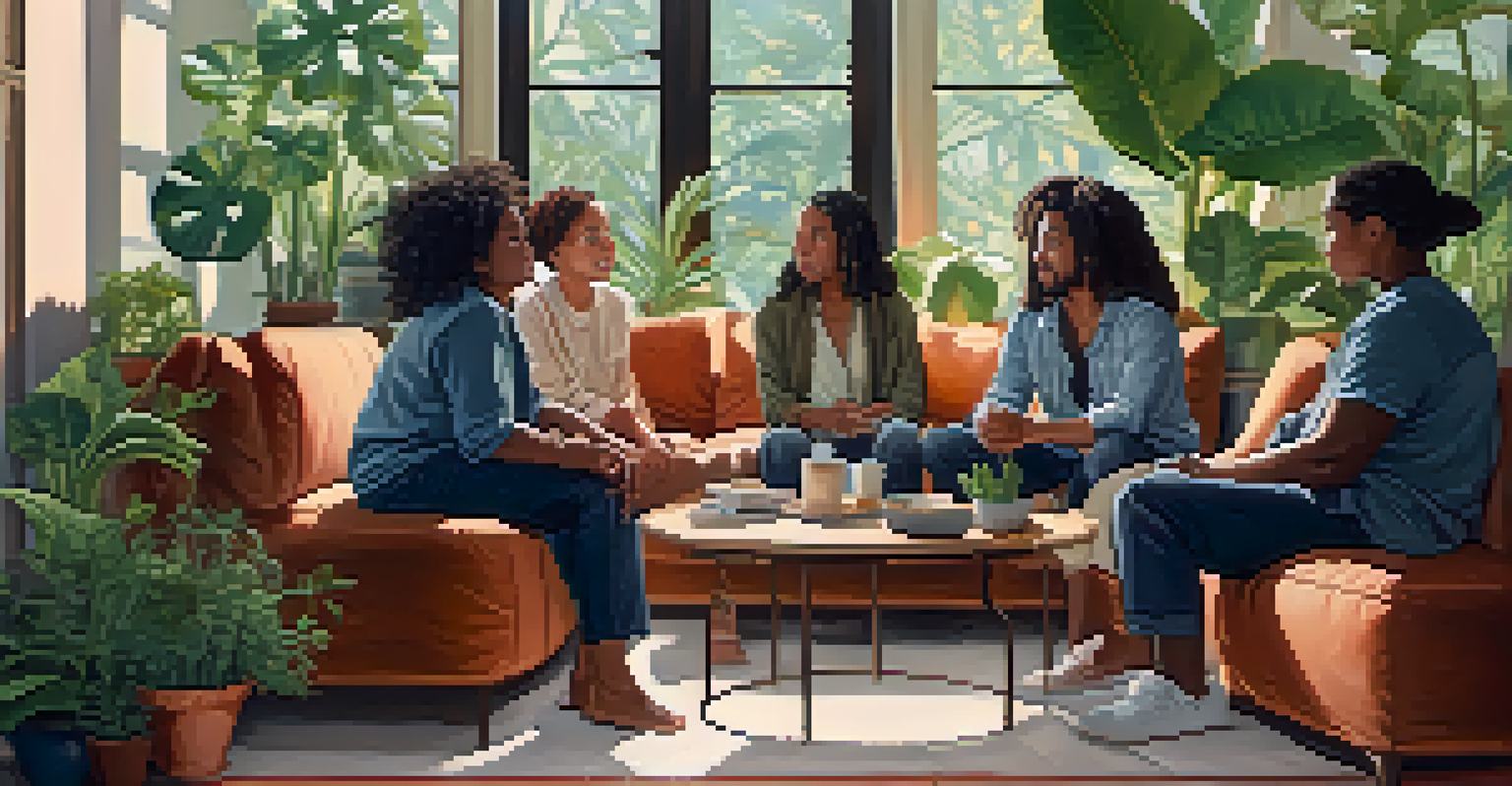Personal Stories: Healing Grief with Entheogenic Experiences

Understanding Grief and Its Challenges
Grief is a universal experience, yet it can feel intensely isolating. It's that heavy blanket that weighs you down after losing someone close, leaving you to navigate a maze of emotions. Many people find themselves stuck in cycles of sorrow, struggling to find a way forward.
Grief is not a sign of weakness, nor a lack of faith... It is the price of love.
The process of grieving isn't linear; it can twist and turn, sometimes taking unexpected detours. Individuals may feel anger, confusion, and guilt, all while yearning for relief. This complexity can make healing seem like an uphill battle, especially when traditional methods don’t resonate.
In recent years, some have turned to entheogenic experiences as a means to address their grief. These substances, often derived from plants or fungi, can open pathways to introspection and emotional release, offering new perspectives on loss.
What Are Entheogens and Their Role in Healing?
Entheogens are substances that can induce altered states of consciousness, often used in spiritual or therapeutic contexts. Think of them as keys that unlock hidden doors in our minds, helping us explore feelings and memories that we may not confront otherwise. They have been utilized for centuries in various cultures for healing and spiritual growth.

While the term might sound intimidating, entheogens can include familiar substances like psilocybin (found in magic mushrooms) and ayahuasca, a brew made from Amazonian plants. These experiences can provide profound insights, often leading to catharsis and emotional breakthroughs that traditional methods might not evoke.
Grief is Complex and Non-Linear
The grieving process involves a mix of emotions like sorrow, anger, and confusion, making healing feel challenging.
Many have reported that during these entheogenic journeys, they felt a deep connection to their lost loved ones, uncovering unresolved emotions and ultimately fostering healing. This process can allow individuals to reframe their grief, transforming pain into a source of wisdom and strength.
Personal Stories: Transformative Experiences with Grief
One powerful narrative comes from Sarah, who lost her mother unexpectedly. Despondent and overwhelmed, she decided to explore a psilocybin experience after reading about its potential benefits. During her journey, she vividly recalled cherished moments with her mother, feeling an overwhelming sense of love that transcended her loss.
The wound is the place where the Light enters you.
As Sarah navigated these memories, she experienced a surge of emotions that led to a cathartic release. It was as if the weight of her grief had lifted, allowing her to embrace the joyful moments rather than just the tragedy of her loss. This transformative experience reshaped her understanding of grief, helping her find a path toward healing.
Stories like Sarah's illustrate the potential of entheogens to facilitate profound healing. They serve as reminders that while grief can be isolating, shared experiences and personal stories can foster connection and hope.
How Entheogenic Journeys Foster Connection
Entheogenic experiences often create a sense of interconnectedness, both with nature and others. Participants frequently report feelings of empathy and unity, breaking down the barriers that isolation can impose. This shared human experience can be particularly comforting for those in mourning.
Imagine sitting in a circle with others who have also faced loss, sharing stories while under the influence of an entheogen. The bonds formed in these moments can be profound, allowing individuals to feel understood and supported in their grief journey. It’s a reminder that we are not alone in our pain.
Entheogens Offer Healing Insights
Substances like psilocybin can facilitate profound emotional breakthroughs, helping individuals reframe their grief.
This sense of community can be a healing balm, providing a space where participants can express their emotions without fear of judgment. As they share their journeys, the collective experience often leads to mutual healing, reinforcing the idea that vulnerability can pave the way for emotional recovery.
Navigating the Risks and Considerations
While entheogenic experiences can be healing, it's essential to approach them with caution. Not everyone will have the same response, and for some, these substances may trigger anxiety or panic, especially in those already dealing with grief. It's crucial to be aware of one’s mental health history before embarking on this journey.
Working with experienced guides or facilitators can help mitigate risks, providing support and ensuring a safe environment. This professional guidance can be invaluable, especially for individuals navigating the complexities of grief. They can help participants set intentions, process emotions, and integrate their experiences afterward.
Ultimately, the decision to explore entheogens should be made thoughtfully, considering personal circumstances and mental well-being. When approached with care, these journeys can offer transformative insights that complement other healing methods.
Integrating Insights into Daily Life
Emerging from an entheogenic experience can feel like stepping into a new light, but integrating those insights into daily life is equally important. Participants often find themselves reflecting on the lessons learned, aiming to carry that wisdom forward as they navigate their grief journey. It’s a process that requires patience and self-compassion.
Journaling can be a helpful tool during this integration phase, allowing individuals to articulate their experiences and feelings. By documenting thoughts and emotions, they can create a roadmap for healing, identifying what resonates with them and what changes they want to implement in their lives.
Community Supports Grief Healing
Shared entheogenic experiences can foster connections among participants, providing comfort and understanding during mourning.
Additionally, connecting with supportive communities or continuing therapy can help reinforce the growth achieved during entheogenic journeys. This ongoing support can be instrumental in ensuring that the insights gained continue to blossom, guiding individuals toward a healthier relationship with their grief.
Moving Forward: A New Perspective on Grief
As individuals navigate through their grief, the lessons learned from entheogenic experiences can foster a new perspective on loss. Rather than being solely defined by sorrow, many find that their grief transforms into a celebration of love and connection with their lost loved ones. This shift can bring a sense of peace and acceptance that was previously elusive.
The journey through grief is deeply personal, and for some, entheogens provide a unique lens through which to view their experiences. They might find themselves embracing the idea that grief is not just about loss, but also about the love that continues to exist beyond physical separation.

In sharing personal stories, individuals create a tapestry of experiences that highlight the resilience of the human spirit. By acknowledging grief as a natural part of life, we can collectively foster a culture of understanding and support, encouraging others to share their journeys toward healing.